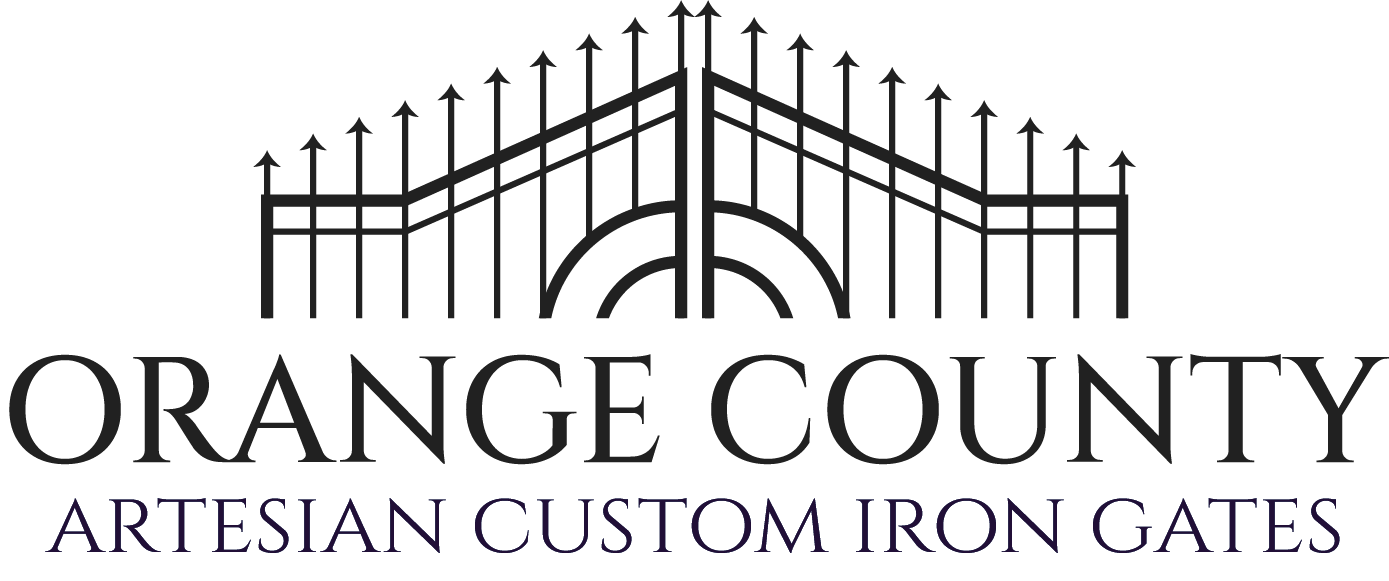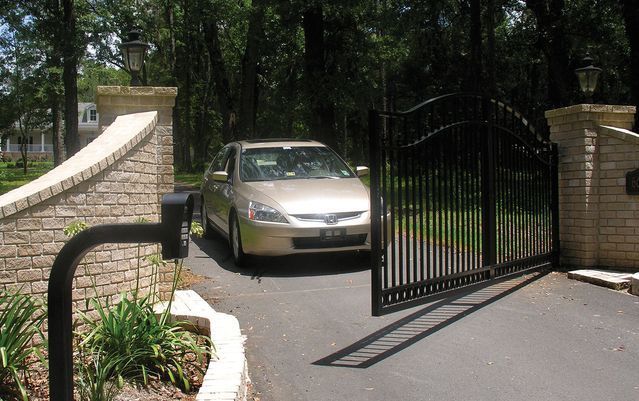Safety Loop Sensor Installation
Orange County Artesian Custom Iron Gates provides expert safety loop sensor installation services to enhance the security and safety of your automatic gate systems throughout Orange County. Our professional installation team specializes in installing high-quality loop sensors that detect vehicles and prevent dangerous gate closures, protecting both people and property from potential accidents.
Safety loop sensors are essential components for any automatic gate system, providing reliable vehicle detection through electromagnetic technology buried beneath your driveway surface. These sensors create an invisible safety zone that immediately stops or reverses gate operation when a vehicle is detected, ensuring compliance with UL 325 safety standards and reducing liability concerns for property owners.
Our experienced technicians handle complete installations for both residential and commercial properties, working with swing gates, sliding gates, and barrier systems of all sizes. We carefully assess your property's specific requirements, including traffic patterns, gate type, and existing electrical systems, to determine the optimal sensor placement and configuration.
Whether you're upgrading an existing gate system or installing sensors on a new automatic gate, our team ensures precise installation with minimal disruption to your property. We use only professional-grade equipment and provide comprehensive testing to guarantee reliable operation.
Types of Safety Loop Sensors Offered
We provide a range of safety loop sensors designed to suit different gate and fence systems. These sensors help detect vehicles and prevent accidents by triggering gate operations or stopping gates when objects are detected.
Standard Inductive Loop Sensors
Our standard inductive loop sensors work by creating an electromagnetic field in the loop wire buried in the pavement. When a vehicle passes over or stops on the loop, it disrupts the field, signaling the control system to act. These sensors typically measure 6x10 feet or 6x6 feet and are installed 2-4 inches deep in a saw-cut groove in concrete or asphalt.
The loop wire is sealed with flexible sealant to prevent water damage and ensure longevity. Standard loops are highly reliable for most residential and commercial gate setups, offering consistent detection for vehicles ranging from motorcycles to large trucks.
Miniature Loop Sensors
Miniature loop sensors are smaller and less intrusive, typically measuring 3x6 feet or 4x4 feet, making them ideal for locations with limited space or where aesthetics are a concern. These compact sensors work on the same electromagnetic principle but require less concrete cutting and create minimal visual impact on driveways.
Despite their reduced size, they maintain the sensitivity and durability needed for consistent performance in residential applications. Miniature loops are perfect for narrow driveways, decorative concrete surfaces, or areas where full-size loop installation would be disruptive.
Dual Loop Sensors
We also offer dual loop sensors that use two separate loops positioned strategically to detect vehicle presence and direction. This advanced system improves safety and functionality by differentiating incoming and outgoing traffic, preventing gates from closing on vehicles still in the detection zone.
The primary loop handles initial detection while the secondary loop provides directional information and extended coverage. Dual loops are often used in high-traffic or complex gate systems, commercial properties, and locations requiring enhanced safety protocols.
Our Safety Loop Sensor Installation Process
Our comprehensive installation process ensures your safety loop sensors are installed correctly and function reliably for years to come. Orange County Artesian Custom Iron Gates follows a systematic approach that minimizes disruption to your property while delivering professional results.
Site Evaluation and Planning
We begin by conducting a thorough site evaluation to determine the optimal location for your safety loop sensor. Our technicians assess your driveway layout, existing electrical systems, and gate operation patterns to identify the best sensor placement.
We also evaluate potential obstacles such as underground utilities, irrigation systems, or decorative elements that could affect installation. This comprehensive assessment allows us to create a customized installation plan that maximizes sensor effectiveness while minimizing impact on your property.
Precision Installation and Wiring
Next, we prepare the installation area by marking and cutting precise slots in the pavement using professional concrete cutting equipment. Our team carefully installs the sensor loop wire at the proper depth, ensuring correct spacing and alignment for optimal vehicle detection.
We use high-quality loop wire and weatherproof connections, then seal all cuts with flexible sealant to prevent water infiltration and maintain pavement integrity.
System Integration and Testing
Finally, we connect the sensor to your gate control system and perform comprehensive testing to verify proper communication and operation. We calibrate the sensor sensitivity, test detection accuracy with various vehicle types, and ensure seamless integration with your existing gate mechanism.
Our technicians make any necessary adjustments to guarantee smooth, secure operation before completing the installation.
Service Areas in Orange County
We proudly serve the entire Orange County area with our safety loop sensor installation services. Our team is equipped to handle projects in both residential and commercial properties across various cities and neighborhoods.
Our service areas include, but are not limited to:
- Costa Mesa
- Fullerton
- Santa Ana
- Tustin
- Anaheim
If your location is within Orange County, we can provide a tailored installation that meets local safety and regulatory standards.
For any specific area or special requests,
contact us directly. We are committed to delivering reliable and efficient safety solutions throughout Orange County.
FAQs on Safety Loop Sensor Installation
We address common concerns about safety loop sensors, focusing on their practical advantages. Understanding these benefits helps you make informed decisions about installation and property safety.
How much does safety loop sensor installation cost?
Safety loop sensor installation typically costs between $300-$800 for residential gates, depending on the gate type, existing wiring, and sensor quality. Commercial installations range from $500-$1,200 due to more complex requirements and higher-grade equipment. The price includes the sensor, wiring, programming, and professional installation. Additional costs may apply if concrete cutting or extensive rewiring is needed.
How long does loop sensor installation take?
Most safety loop sensor installations take 2-4 hours to complete. Simple installations on gates with existing wiring can be finished in about 2 hours, while more complex jobs requiring concrete cutting, trenching, or multiple sensors may take up to 6 hours. Weather conditions and gate accessibility can also affect installation time. Professional installers typically complete the job in a single visit.
Do I need permits for safety loop sensor installation?
Permits are generally not required for safety loop sensor installation since it's considered maintenance or safety upgrade work rather than new construction. However, some HOAs or commercial properties may require approval before modifications. If your installation involves significant electrical work or affects public areas, local permits might be necessary. It's best to check with your installer about any local requirements.
What type of safety loop sensor do I need for my gate?
The type of safety loop sensor depends on your gate's operation and installation area. Electromagnetic loop detectors are most common and work well for both swing and sliding gates, detecting metal vehicles overhead. Buried loop sensors are ideal for driveways with consistent traffic patterns. For gates with limited burial space, above-ground pressure mats or beam sensors may be better options. Your gate's weight, speed, and traffic volume will determine the appropriate sensor sensitivity and size.

